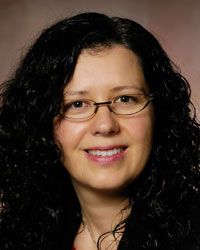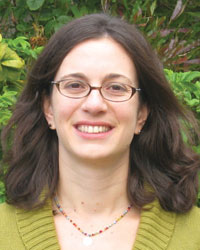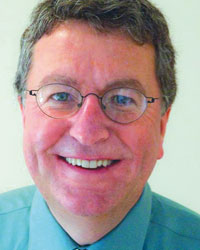James McKeen Cattell Fund Fellowship 2012-2013 Recipients
We are pleased to announce the recipients of the James McKeen Cattell Fund Fellowships. The Fellowships are awarded yearly to North American university faculty committed to developing scientific research in psychology and its applications to improving human welfare. The award includes financial support that allows recipients to extend their sabbatical period.

Liisa Galea
Liisa Galea studies behavioral neuroscience at the University of British Columbia, Canada. In the Laboratory of Behavioural Neuroendocrinology, Galea and students research the effects of various hormones on the brain and behavior. “The discovery that the expression of genes can be manipulated by environment has revolutionized our thinking that ‘nurture’ can dramatically affect the expression of nature. I study both stress exposure and maternal experiences, both of which have been shown to alter the expression of genes that contribute to stress reactivity and cognition.” The Fellowship will allow Galea to learn new techniques in epigenetics that will allow her to study sex differences in epigenetic modification related to early adversity.

Cheryl Kaiser
Cheryl Kaiser is the director of the Social Identity Laboratory at the University of Washington. Kaiser’s research examines the interplay between social psychological theoretical perspectives and social issues such as diversity, immigration, social inequality, and employment-discrimination law. She also studies how personal, situational, and structural factors affect the perception of prejudice as well as how individuals cope cognitively, emotionally, and behaviorally with prejudice. “I will devote this sabbatical toward acquiring expertise in civil rights law,” says Kaiser, “by pursuing coursework on civil rights and employment discrimination at the University of Washington Law School. I will integrate this legal knowledge within my research program on the psychology of discrimination to better identify research questions that are central to law and policy as well as educate lawyers about the relevant science on discrimination.” Kaiser hopes the opportunity to delve into a new discipline can shed light onto how law and psychological science on discrimination can more effectively inform each other.

Martin Sarter
Martin Sarter is the Charles M. Butter Collegiate Professor of Psychology and Professor of Neuroscience at the University of Michigan. His research focuses on the regulation and function of the cortical cholinergic-input system, a major component of the brain’s attention systems. “I will use this Fellowship,” says Sarter, “to receive training in contemporary immunohistological methods, specifically immunoelectron microscopy and laser scanning microscopy. These methods will allow me to determine of subclasses of cortical GABAergic interneurons (e.g., chandelier cells) and the type and precise subcellular location of their efferent synaptic contacts (e.g., at the axon initial segment versus distal dendrites).” This research could help determine the neuronal mechanisms underlying the cognitive symptoms of major neuropsychiatric disorders, such as schizophrenia and Parkinson’s disease, as well as the biased attentional processing of drug-related cues in addicts.

Helen Tager-Flusberg
Helen Tager-Flusberg is the director of the developmental science program in the department of Psychology and the Research on Autism and Developmental Disorders Laboratory at Boston University. In the lab, Tager-Flusberg conducts behavioral as well as brain-imaging research on infants, children, and adults with neurodevelopmental disorders, including autism spectrum disorder, specific language impairment, and Williams syndrome. Her focus is on understanding developmental changes in the language and related social cognitive phenotypes in these populations. The Cattell Fund Award will provide her with “the opportunity to complete work on a book focused on language in autism that addresses the complex relationship between science and society,” says Tager-Flusberg. This book weaves together parallel narratives on what is known about language and communication impairments in autism, and the “language” that is used to communicate about autism to the broader community of stakeholders by clinicians, the media, scientists, and people with autism.
The James McKeen Cattell Fund was established in 1942 to provide support for the science and application of psychology. Cattell created the fund to support scientific research that would advance the development of psychological science and its applications. For more information on this award, visit www.psychologicalscience.org/index.php/members/awards-and-honors/catell-award/.





APS regularly opens certain online articles for discussion on our website. Effective February 2021, you must be a logged-in APS member to post comments. By posting a comment, you agree to our Community Guidelines and the display of your profile information, including your name and affiliation. Any opinions, findings, conclusions, or recommendations present in article comments are those of the writers and do not necessarily reflect the views of APS or the article’s author. For more information, please see our Community Guidelines.
Please login with your APS account to comment.